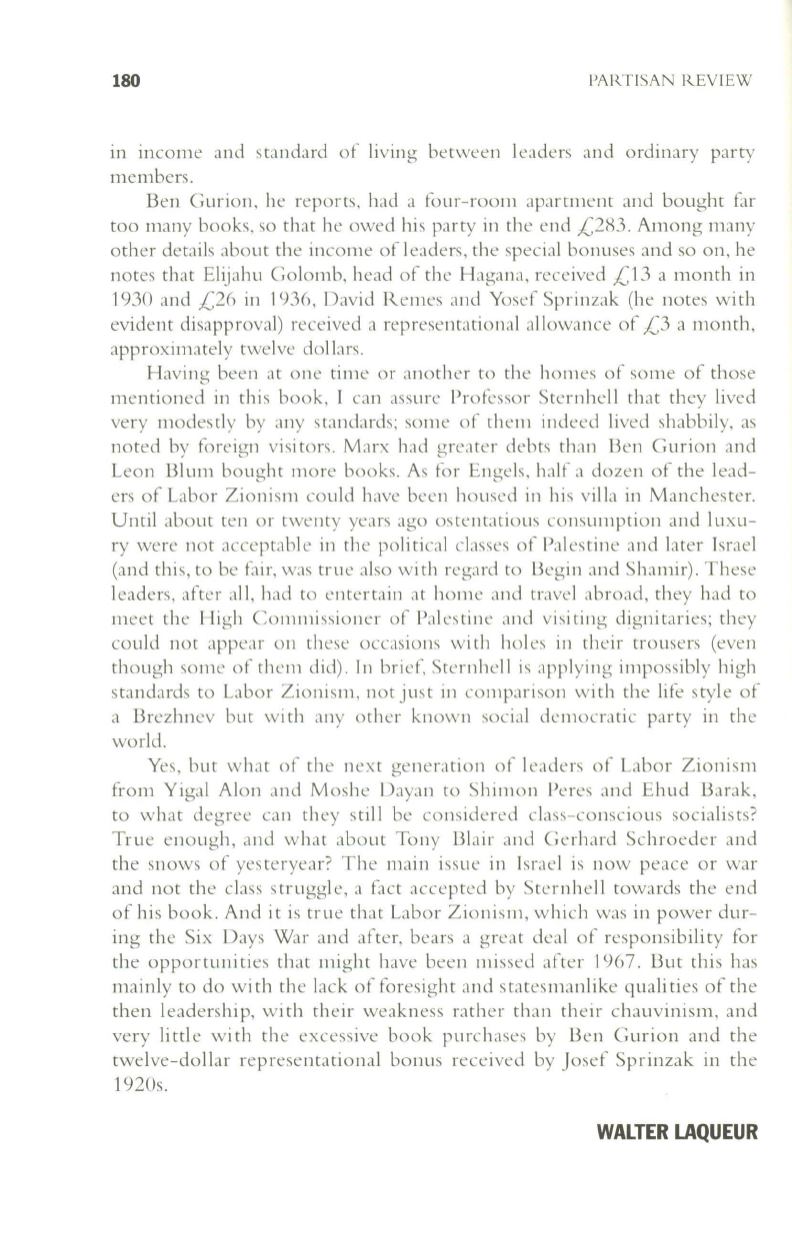
180
PARTISAN KEVIEW
In Income and standard of living between leaders and ordinary party
members.
Ben Gurion, he reports, had a four-roolll apartment and bought far
too many books, so that he owed his party in the end
£283.
Among many
other details about the income of leaders, the special bonuses and so on, he
notes that Elijahu Golomb, head of the Hagana , received
£13
a month in
1930
and
£26
in
1936,
David Remes and Yosef Sprinzak (he notes with
evident disapproval) received a representational allowance of
£3
a month,
approximately twelve dollars.
Having been at one time or another to the homes of some of those
mentioned in this book, I can assure Professor Stern hell that they lived
very modestly by any standards; some of them indeed lived shabbily, as
noted by foreign visi tors. Marx had greater debts than Ben Gurion and
Leon Bl um bought more books. As for Engels, half a dozen of the lead–
ers of Labor Zionism could have been housed in his villa in Manchester.
Until about ten or twenty years ago ostentatious consumption and luxu–
ry were not acceptable in the political classes of Palestine and later Israel
(and this , to be fair, was true also with regard to Begin and Shamir). These
leaders, after all, had to entertain at home 3nd travel abroad, they had to
meet the High Commissioner of P3lestine Jnd visiting dignitaries; they
could not appear
011
these occasions with holes in their trousers (even
though some of them did).
In
brief, Sternhell is applying impossibly high
standards to Labor Zionism, not just in comparison with the life style of
a Brezhnev but wi th any other known sociJl democratic party in the
world.
Yes, but what of the next generation of leaders of Labor Zionism
from Yigal Alon and Moshe Dayan to Shimon Peres and Ehud Barak,
to what degree can they still be considered class-conscious socialists?
True enough, and what about Tony l3lair and Gerhard Schroeder and
the snows of yesteryear? The main issue ill Israel is now peace or war
and not the class struggle, a fact accepted by Stern hell towards the end
of his book. And it is true that Labor ZionislI1, which was in power dur–
ing the Six Days War and after, bears a great deal of responsibility for
the opportunities that might have been missed after 1967. But this has
mainly to do with the lack of foresight and statesmanlike qualities of the
then leadership, with their weakness rather than their chauvinism, and
very little with the excessive book purchases by Ben Gurion and the
twelve-dollar representational bonus received by Josef Sprinzak in the
1920s.
WALTER LAQUEUR


